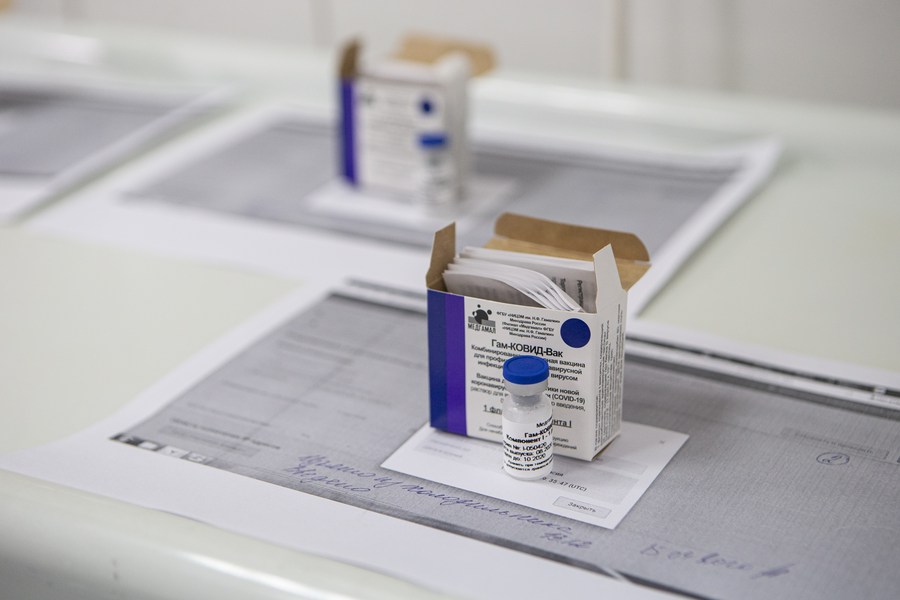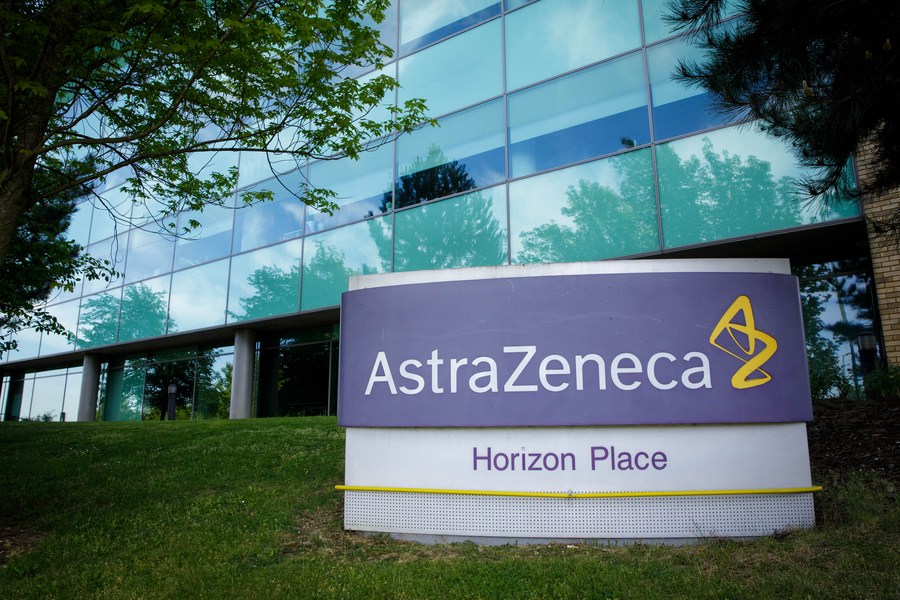Video: UN Secretary-General Antonio Guterres on Sept. 16, 2020 calls on the international community to come together to defeat COVID-19. (Xinhua)
"Many pin their hopes on a vaccine - but let's be clear: there is no panacea in a pandemic," says Antonio Guterres.
UNITED NATIONS, Sept. 16 (Xinhua) -- United Nations Secretary-General Antonio Guterres on Wednesday called on the international community to come together to defeat COVID-19.
"The virus is the number one global security threat in our world today," the UN chief said at a hybrid press conference, noting that this is the moment when "the international community needs to come together to defeat the virus."
"Many pin their hopes on a vaccine - but let's be clear: there is no panacea in a pandemic," the secretary-general noted. "A vaccine alone cannot solve this crisis; certainly not in the near term."

Photo taken on Sept. 15, 2020 shows Russia's new COVID-19 vaccine named "Sputnik V" during the phase-3 clinical trials in Moscow, Russia. (Photo by Alexander Zemlianichenko Jr/Xinhua)
"We need to massively expand new and existing tools that can respond to new cases and provide vital treatment to suppress transmission and save lives, especially over the next 12 months," said Guterres.
The UN chief stressed that starting now, a vaccine must be seen as "a global public good, because COVID-19 respects no borders."
"We need a vaccine to be affordable and available to all - a people's vaccine," he noted. "That means a quantum leap in funding for the ACT-Accelerator and its COVAX Facility."
"For any vaccine to work, people across the globe need to be willing to take it," said the secretary-general, adding that "with the spread of the virus, we are also seeing a proliferation of misinformation about a future vaccine."

Photo taken on May 18, 2020 shows a logo in front of AstraZeneca's building in Luton, Britain. AstraZeneca, which is developing a possible vaccine against COVID-19 in partnership with the University of Oxford, on Wednesday put on hold the phase-3 trial of its vaccine following an unexplained illness in one trial participant in Britain. (Photo by Tim Ireland/Xinhua)
"This is fueling vaccine hesitancy and igniting wild conspiracy theories," he noted.
Guterres underscored that "mistrust in vaccines" is on the rise around the world.
"We have seen alarming reports of large segments of the population in some countries indicating their reluctance or even refusal to take a future COVID-19 vaccine," he elaborated.
"In the face of this lethal disease, we must do our utmost to halt deadly misinformation," said the secretary-general. ■



